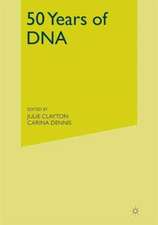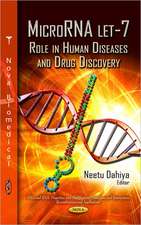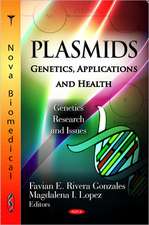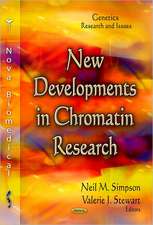Plant Genome Diversity Volume 1: Plant Genomes, their Residents, and their Evolutionary Dynamics
Editat de Jonathan Wendel, Johann Greilhuber, Jaroslav Dolezel, Ilia J. Leitchen Limba Engleză Paperback – 18 apr 2014
| Toate formatele și edițiile | Preț | Express |
|---|---|---|
| Paperback (1) | 954.45 lei 6-8 săpt. | |
| SPRINGER VIENNA – 18 apr 2014 | 954.45 lei 6-8 săpt. | |
| Hardback (1) | 961.55 lei 3-5 săpt. | |
| SPRINGER VIENNA – 26 mar 2012 | 961.55 lei 3-5 săpt. |
Preț: 954.45 lei
Preț vechi: 1163.97 lei
-18% Nou
Puncte Express: 1432
Preț estimativ în valută:
182.63€ • 199.01$ • 153.90£
182.63€ • 199.01$ • 153.90£
Carte tipărită la comandă
Livrare economică 23 aprilie-07 mai
Preluare comenzi: 021 569.72.76
Specificații
ISBN-13: 9783709116999
ISBN-10: 3709116996
Pagini: 292
Ilustrații: X, 282 p.
Dimensiuni: 210 x 279 x 15 mm
Greutate: 0.7 kg
Ediția:2012
Editura: SPRINGER VIENNA
Colecția Springer
Locul publicării:Vienna, Austria
ISBN-10: 3709116996
Pagini: 292
Ilustrații: X, 282 p.
Dimensiuni: 210 x 279 x 15 mm
Greutate: 0.7 kg
Ediția:2012
Editura: SPRINGER VIENNA
Colecția Springer
Locul publicării:Vienna, Austria
Public țintă
ResearchCuprins
1. The first ten years of plant genome sequencing and prospects for the next decade (L. Flagel and B. Blackman).- 2. Plant transposable elements: biology and evolution (E. Kejnovsky, J. Hawkins, C. Feschotte).- 3. The impact of transposable elements on gene and genome evolution (R. Slotkin, S. Nuthikattu, and N. Jiang).- 4. Centromeres: sequences, structure, and biology (C. Hirsch and J. Jiang).- 5. Telomeres and their biology (M. Siomos and K. Riha).- 6. The biology and dynamics of plant small RNAs (T.-F. Lee, P. Li, and B. Meyers ).- 7. Variation in rates of molecular evolution in plants and implications for estimating divergence times (J. Burleigh).- 8. Conserved non-coding sequences in plant genomes (S. Subramaniam and M. Freeling).- 9. Plant mitochondrial genome diversity – the genomics revolution (J. Mower, D. Sloan, and A. Alverson).- 10. Plastid genome diversity (P. Wolf).- 11. Duplication and turnover in plant genomes (M. Barker).- 12. Concerted evolution of multigene families and homoeologous recombination (G. Nieto-Feliner and J.A. Rossello).- 13. Synteny and genomic rearrangements (A. Paterson, X. Wang, H. Tang, and T. H. Lee).- 14. The variation of base composition in plant genomes (P. Smarda and P. Bures).- 15. Chromatin modifications in plants (X. Zhang).- 16. Evolutionary significance of epigenetic variation (C. Richards, K. J. F. Verhoeven and O. Bossdorf ).
Notă biografică
Jonathan F. Wendel is a Professor and Chair of the Ecology, Evolution, and Organismal Biology Department at Iowa State University, where he has been on the faculty since 1986. Research interests in his lab encompass molecular and genome evolution, phylogenetics, and the phenotypic evolution of higher plants. His research group employs a diverse set of genomic technologies and approaches to explore the manner in which genomes change over evolutionary time, as well as the relationship between these events and morphological change. They have a particular interest in the mysterious and common phenomenon of polyploidy, with a special focus on the cotton genus.
Johann Greilhuber is an Associate Professor at the University of Vienna (Faculty of Life Sciences) in the Department of Systematic and Evolutionary Botany (formerly the Institute of Botany), where he has been a member of staff since 1968. He received his PhD in 1973 and became Professor in 1978 (Habilitation). His main research interests are genome size and the cytometric methods used to estimate it, chromosome banding, cytogenetics and karyosystematics.
Jaroslav Doležel holds a PhD degree in Genetics, which he received from the Czechoslovak Academy of Sciences, Prague in 1983. He spent most of his research career at the Institute of Experimental Botany in Olomouc, Czech Republic, where he established the Laboratory of Molecular Cytogenetics and Cytometry and pioneered the use of DNA flow cytometry in plants. He is an Associate Professor at the Palacký University in Olomouc and his research interests focus on plant genome structure and evolution.
Ilia Leitch studied biology at Bristol University, followed by postdoctoral research at the John Innes Institute, UK, applying the technique of fluorescent in situ hybridization to study grass chromosome organization. Since 1993 she has been at the Jodrell Laboratory, Royal Botanic Gardens, Kew, where her work isfocused on understanding the evolutionary significance of the immense diversity of plant genomes (e.g. size, number, organization and composition).
Johann Greilhuber is an Associate Professor at the University of Vienna (Faculty of Life Sciences) in the Department of Systematic and Evolutionary Botany (formerly the Institute of Botany), where he has been a member of staff since 1968. He received his PhD in 1973 and became Professor in 1978 (Habilitation). His main research interests are genome size and the cytometric methods used to estimate it, chromosome banding, cytogenetics and karyosystematics.
Jaroslav Doležel holds a PhD degree in Genetics, which he received from the Czechoslovak Academy of Sciences, Prague in 1983. He spent most of his research career at the Institute of Experimental Botany in Olomouc, Czech Republic, where he established the Laboratory of Molecular Cytogenetics and Cytometry and pioneered the use of DNA flow cytometry in plants. He is an Associate Professor at the Palacký University in Olomouc and his research interests focus on plant genome structure and evolution.
Ilia Leitch studied biology at Bristol University, followed by postdoctoral research at the John Innes Institute, UK, applying the technique of fluorescent in situ hybridization to study grass chromosome organization. Since 1993 she has been at the Jodrell Laboratory, Royal Botanic Gardens, Kew, where her work isfocused on understanding the evolutionary significance of the immense diversity of plant genomes (e.g. size, number, organization and composition).
Textul de pe ultima copertă
In this timely new 2-volume treatise, experts from around the world have banded together to produce a first-of-its-kind synopsis of the exciting and fast moving field of plant evolutionary genomics. In Volume I of Plant Genome Diversity, an update is provided on what we have learned from plant genome sequencing projects. This is followed by more focused chapters on the various genomic “residents” of plant genomes, including transposable elements, centromeres, small RNAs, and the evolutionary dynamics of genes and non-coding sequences. Attention is drawn to advances in our understanding of plant mitochondrial and plastid genomes, as well as the significance of duplication in genic evolution and the non-independent evolution among sequences in plant genomes. Finally, Volume I provides an introduction to the vibrant new frontier of plant epigenomics, describing the current state of our knowledge and the evolutionary implications of the epigenomic landscape.
Caracteristici
In addition to Volume 2, the most comprehensive book in the field of plant genome evolution and diversity Written by international reowned experts in the field Covers basic genetic and molecular aspects as well as lately discovered research results Together with Volume 2, unique in its way of clearly depicting the evolution of plant genomes and their diversity. Includes supplementary material: sn.pub/extras













